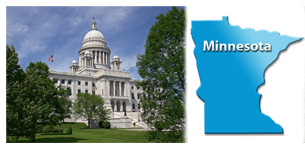[SPEAKER]
As noted earlier, the enabling legislation for Medicaid reimbursement was considered budget neutral. This conclusion could not have been made without the active leadership of the Minnesota Department of Human Services, which acted as a champion within the state government.
Minnesota is one of a number of states in which tribal governments play a significant role in health care. The Indian Health Service funds perhaps the largest single CHW program in the country, the Community Health Representative Program. Administration of Community Health Representatives differs in structure and style from one tribal government to another.
Leaders in Minnesota elected to focus CHW training in community colleges, believing that earning academic credits was important for CHWs. Priorities may differ in other states. Nonetheless, community colleges are accustomed to recruiting students in open enrollment for occupation-related education. However, they also assist students in finding jobs after graduation, and some colleges were not prepared to offer the CHW program until leaders could document a more viable job market. This may well be true elsewhere.
And finally, Minnesota has included in its current priorities a plan to conduct an awareness campaign for the CHW as an occupation. In hindsight, Minnesota leaders believe that such a campaign might have been valuable earlier in the process.
 Lessons learned in Minnesota include:
Lessons learned in Minnesota include:
